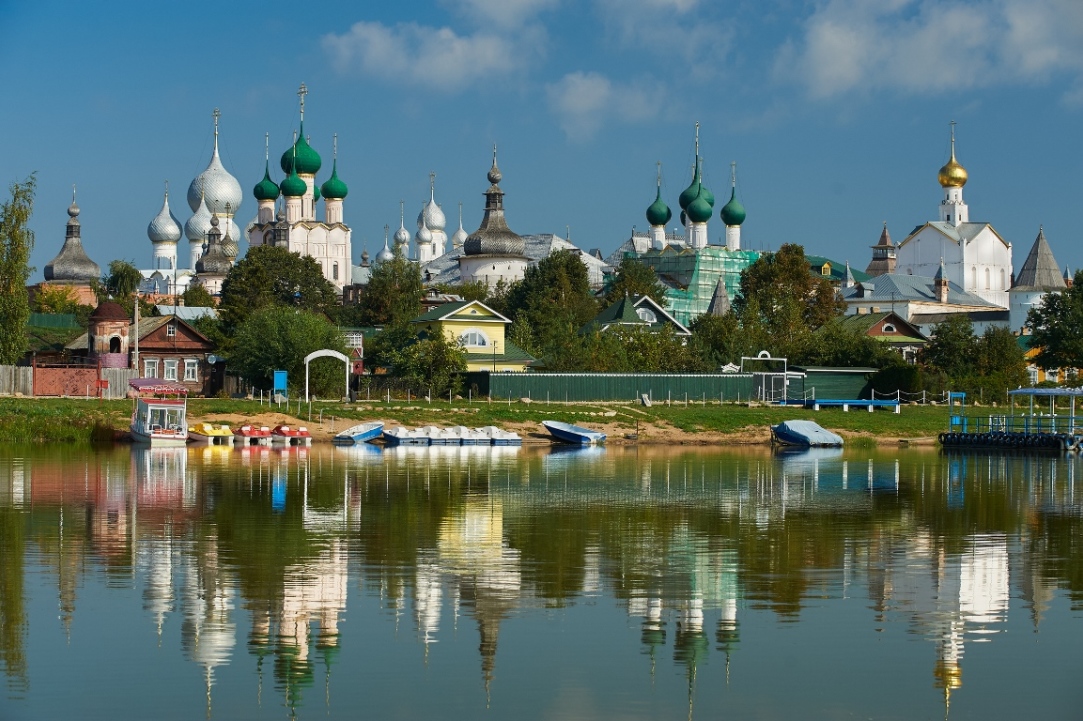HSE Research Teams to Receive Russian Science Foundation Grants in 2017
The Russian Science Foundation has announced winners of its latest grant competition to support basic scientific research and exploratory scientific research conducted by research teams.

Values Evolution: East Still to Catch Up with West
Since World War II, people in many countries have enjoyed a better sense of wellbeing, which has resulted in survival values giving way to emancipation values. Threats no longer lurk at every turn, and each new generation sees more opportunities and fewer barriers to empowerment. The book Freedom Rising by LCCR Chief Research Fellow Christian Welzel offers some ideas on how widespread this process is, whether it is irreversible and where human emancipation can lead.
Exploring New Approaches to Higher Education in Russia
Martha C. Merrill, Associate Professor of Higher Education at Kent State University (USA), will present at the upcoming XVIII April International Academic Conference on Economic and Social Development during a section entitled ‘Education in Russia and CIS countries through the prism of global trends’. She spoke with the HSE News Service ahead of the conference about her extensive research on both Russian higher education and comparative research that she has undertaken in Central Asia.
Analysing BRICS Media and Creative Industries
On April 11, Dr Daya Thussu, Professor of International Communication and Co-Director of India Media Centre at the Communication and Media Research Institute (University of Westminster) will speak at the XVIII April International Academic Conference on Economic and Social Development. His presentation, entitled ‘Creative industries in BRICS nations and glocalization of content’, is part of a panel session on Global corporations and local media content producers on newly emerging markets: technological and creative aspects. In addition to his academic role at the University of Westminster, he serves as the Managing Editor of the journal ‘Global Media and Communication’.

What Russians Tell Tourists about their Towns
Residents of provincial Russian towns put it differently when talking about their towns to Muscovites, foreigners, and tourists from other Russian regions. Such an ‘individual approach’ is spontaneous and may be useful in creating city tourist brands, concluded Nadezhda Radina as a result of her experiment, which involved over 800 residents of Russian provinces.

Can Nicotine Help to Treat Schizophrenia?
Several studies have indicated that schizophrenic patients are likely to show high levels of nicotine dependence. Scientists from Higher School of Economics (HSE), Institut Pasteur, the CNRS, Inserm and the ENS employed a mouse model to elucidate how nicotine influences cells in the prefrontal cortex. They visualized how nicotine has a direct impact on the restoration of normal activity in nerve cells (neurons) involved in psychiatric disorders such as schizophrenia. These findings were published in a paper that appeared in the journal Nature Medicine.
Examining Gender Discrimination in Labour Markets
This year’s April International Academic Conference on Economic and Social Development, taking place from April 11-14 at the Higher School of Economics in Moscow, will cover the most pressing issues relating to Russia’s social and economic development. This year, gender issues are addressed in a number of presentations, including during a special session entitled ‘Gender, socialization, ageism’ taking place on the morning of April 13.
Renowned Strategy Expert to Speak on the Making of Champions at April Conference
Hermann Simon, chairman of Simon-Kucher & Partners Strategy & Marketing Consultants, will present at the upcoming XVIII April International Academic Conference on Economic and Social Development in Moscow. His presentation, entitled ‘Hidden Champions – the Vanguard of Globalia’, will be held during the Firms and Markets section on Tuesday, April 11.

Russians with Degrees: Where Are They Employed?
Russia has a problem with the under-utilisation of education. Almost 30% of employees with university degrees report no connection whatsoever between their training and current occupation, according to Elena Varshavskaya's paper 'Where and in what jobs highly educated Russians work.'
-%D0%BC%D0%BE%D0%B7%D0%B3%20%D0%B4%D0%BE%D1%84%D0%B0%D0%BC%D0%B8%D0%BD.jpg)
Alcoholism May Be Caused by Dynamical Dopamine Imbalance
Researchers from the Higher School of Economics, Ecole Normale Supérieure, Paris, Indiana University and the Russian Academy of Sciences Nizhny Novgorod Institute of Applied Physics have identified potential alcoholism mechanisms, associated with altered dopaminergic neuron response to complex dynamics of prefrontal cortex neurones affecting dopamine release.

